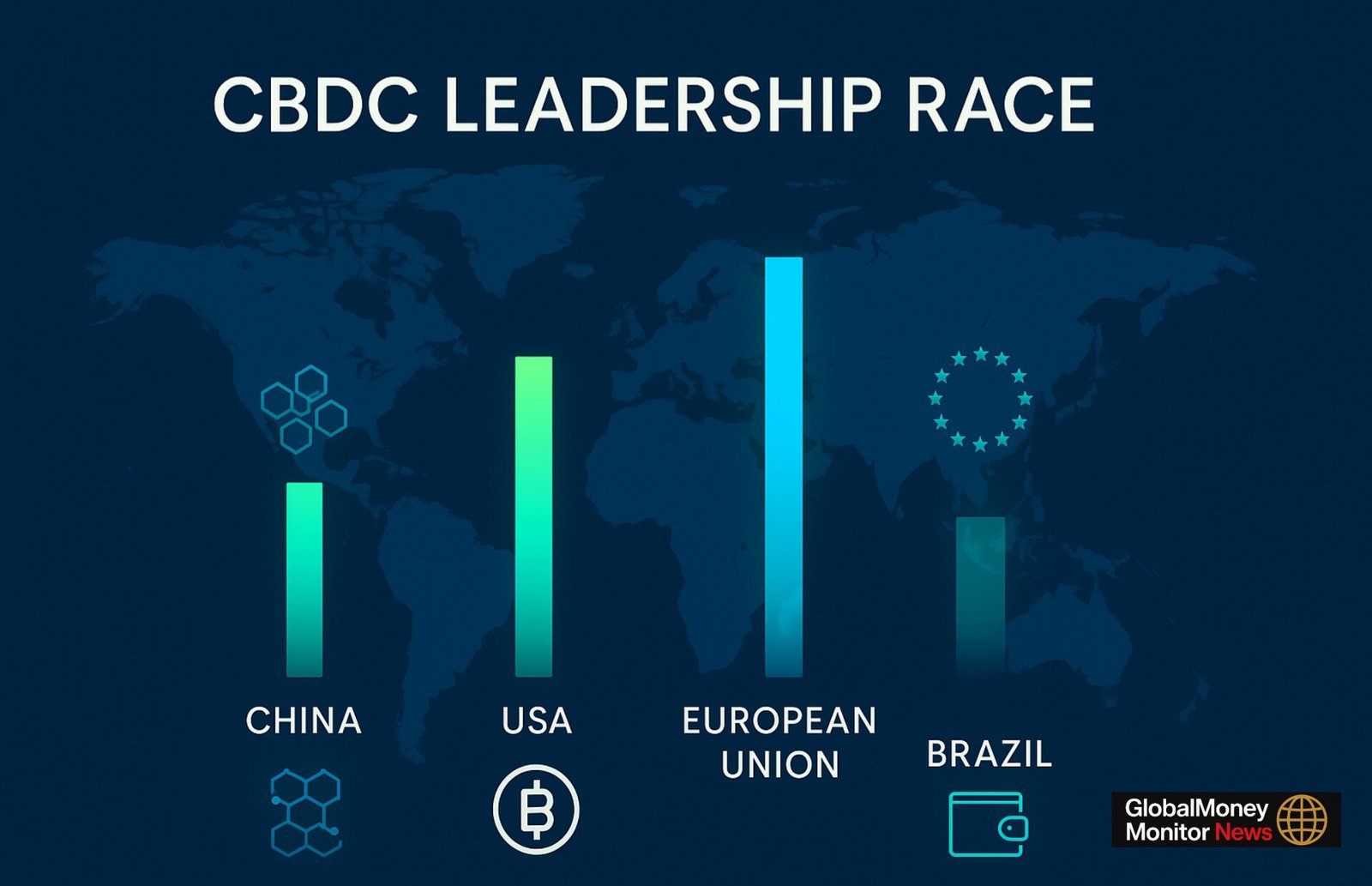Retreat in blockchain testing raises concerns about losing international leadership in central bank digital currencies (CBDCs)
The Central Bank of Brazil (BCB) was once seen as a global pioneer in the development of a central bank digital currency (CBDC) known as Drex. However, recent announcements of delays and adjustments to its roadmap, combined with a step back from blockchain testing, have sparked criticism from analysts, fintech experts, and investors. Many now question whether Brazil is losing its once-promising position in the international race to launch a digital real.
This article provides an in-depth look at the reasons behind the delays, the challenges of blockchain integration, the impacts on financial markets, and the risks Brazil faces if it loses momentum in the increasingly competitive CBDC landscape.
What is Drex and Why Does It Matter?
Drex is the official Brazilian project for a digital real, created as a government-backed currency issued by the Central Bank. The project aims to modernize Brazil’s financial system by incorporating blockchain technology, smart contracts, and tokenization of assets.
Unlike traditional paper money, Drex is designed to expand the possibilities of instant payments, improve access to credit, increase financial inclusion, and create a more efficient system for consumers and businesses. It is widely viewed as the next step after the enormous success of Pix, Brazil’s instant payment system.
The Unexpected Delay
The Central Bank recently announced that several key features originally scheduled for 2024 will now be postponed to 2025. Among the delayed initiatives are:
- Expanded blockchain testing at scale;
- Development of digital wallets with direct Drex access;
- Introduction of programmable money features through smart contracts;
- Full integration with banks, fintechs, and payment providers.
The Central Bank argued that more time is needed to ensure cybersecurity and system stability. Critics, however, interpret the decision as a sign of weakened ambition and a step back compared to global competitors.
Concerns Over Blockchain Testing
The choice to scale back blockchain experimentation was met with frustration in the fintech and startup ecosystem. Companies involved in Drex’s pilot program fear that the retreat may discourage investment in digital asset tokenization and smart contract innovation.
For many observers, the decision marks a departure from Brazil’s early leadership position, when it was considered a model nation for CBDC innovation alongside China, the European Union, and the United States.
Brazil Risks Losing Global Leadership
Around the world, progress in digital currency projects is accelerating.
READ MORE ABOUT THIS TOPIC
Dollar Drops Sharply and Strengthens the Real: Brazilians Celebrate
- China has already rolled out the e-CNY in multiple provinces and tested it in major events.
- The European Central Bank is advancing plans for the digital euro.
- The U.S. Federal Reserve is intensifying research into a digital dollar.
Brazil, once considered an innovation hub in this space, now risks falling behind. A loss of leadership could directly impact:
- Foreign investment attraction in financial technology;
- Brazil’s voice in global CBDC discussions;
- Opportunities to export expertise in digital currencies.
Impacts on Brazil’s Financial Market
The postponement of Drex carries significant implications:
- Banks and fintechs that invested heavily in system integration now face added costs to keep teams and infrastructure on standby.
- Investors view the delay as a sign of regulatory uncertainty, which may reduce foreign capital inflows.
- Consumers are deprived of new payment methods and access to programmable financial products that could lower costs and expand inclusion.
Regulatory and Political Challenges
Beyond technology, Drex is caught in a web of political and regulatory debates. Key concerns include:
- Data privacy and surveillance risks, with fears that the digital real could be used for excessive state monitoring;
- Financial stability concerns from traditional banks worried about losing deposits;
- Congressional hurdles, as legislators debate the implications of a state-backed digital currency.
These issues create uncertainty and compound the challenges posed by the technical delays.
Opportunities Still on the Table
Despite the setbacks, Drex could still become a landmark project if the Central Bank:
- Rebuilds a transparent timeline with clear communication;
- Strengthens partnerships with the private sector;
- Prioritizes cybersecurity and international compliance standards;
- Maintains a long-term vision for continuous innovation.
What Experts Are Saying
Economists argue that Brazil cannot afford to miss the opportunity to be a leader in CBDC adoption. While delays can be justified by caution, the lack of a clear strategy could undermine confidence.
Blockchain specialists stress that without a predictable regulatory environment, Brazil risks driving talent and investment toward countries with more ambitious digital currency policies.
The delay of Drex and the reduction of blockchain testing place Brazil at a crossroads. The country must decide whether to maintain a conservative stance—potentially losing global influence—or revive its early boldness and reclaim leadership in the CBDC race.
If the Central Bank can align security, innovation, and regulation, Drex may yet become a groundbreaking milestone in Brazil’s financial system. But if delays continue without clear progress, the digital real risks becoming an outdated experiment with limited impact.

